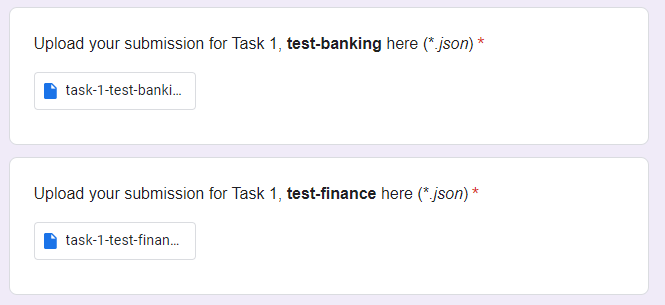This repository contains data, relevant scripts and baseline code for the DSTC11 summer track on Intent Induction from Conversations for Task-Oriented Dialogue.
This track aims to evaluate methods for the automatic induction of customer intents in the realistic setting of customer service interactions between human agents and customers. As complete conversations will be provided, participants can make use of information in both agent and customer turns. The track includes two tasks: (1) intent clustering, which requires participants to assign labels to turns in the dialogues where customers express intents, and (2) open intent induction, in which participants must induce a set of intents from dialogues, with each intent defined by a list of sample utterances to be used as training data for an intent classifier.
Organizers: James Gung, Raphael Shu, Jason Krone, Salvatore Romeo, Arshit Gupta, Yassine Benajiba, Saab Mansour and Yi Zhang
Contact: dstc11-intent-induction (AT) amazon (DOT) com
- April 25th - Details about the track and submissions can now be found in the Track Overview Paper
- April 17th - The DSTC11 workshop will take place at SIGDIAL x INLG 2023, Sept. 11-15th
- November 8th - Call for DSTC11 workshop papers announced
- September 26th - Test conversations released!
- Two domains: Banking and Finance
- Submission form open until October 3rd, 2022 (11:59pm Anywhere on Earth UTC-12)
- Submission standalone validation script provided (see Submissions)
- October 24th - Ground truth intent labels, test utterances, all submitted entries, and raw results released
- Development data release: June 13th, 2022
- Test data release: September 26th, 2022
- Entry submission deadline: October 3rd, 2022
- Final result announcement: October 24th, 2022
- Paper submission: December 2nd, 2022
- Paper acceptance notification: January 20th, 2023
- Camera-ready submission deadline: January 27th, 2023
- DSTC11 Workshop: SIGDIAL x INLG 2023, September 11-15th, 2023
- See Task 1 - Intent Clustering for more details on Task 1.
- See Task 2 - Open Intent Induction for more details on Task 2.
Python 3 (>=3.7) is required. Using a conda/virtual environment is recommended.
# install dependencies
pip3 install -r requirements.txt
# run intent clustering (Task 1) baselines and evaluation
python3 -m sitod.run_experiment \
--data_root_dir dstc11 \
--experiment_root_dir results \
--config configs/run-intent-clustering-baselines.jsonnet
# run open intent induction (Task 2) baselines and evaluation
python3 -m sitod.run_experiment \
--data_root_dir dstc11 \
--experiment_root_dir results \
--config configs/run-open-intent-induction-baselines.jsonnet- Track Overview Paper
- Track Proposal
- Challenge Registration
- DSTC11 Website
- DSTC Mailing List
- NatCS: Eliciting Natural Customer Support Dialogues
See CONTRIBUTING for more information.
This project is licensed under the Apache-2.0 License.
Please cite the following papers if using the tasks, code, or data from this track in your work:
@misc{gung2023natcs,
title={NatCS: Eliciting Natural Customer Support Dialogues},
author={James Gung and Emily Moeng and Wesley Rose and Arshit Gupta and Yi Zhang and Saab Mansour},
year={2023},
eprint={2305.03007},
archivePrefix={arXiv},
primaryClass={cs.CL}
}
@misc{gung2023intent,
title={Intent Induction from Conversations for Task-Oriented Dialogue Track at DSTC 11},
author={James Gung and Raphael Shu and Emily Moeng and Wesley Rose and Salvatore Romeo and Yassine Benajiba and Arshit Gupta and Saab Mansour and Yi Zhang},
year={2023},
eprint={2304.12982},
archivePrefix={arXiv},
primaryClass={cs.CL}
}

